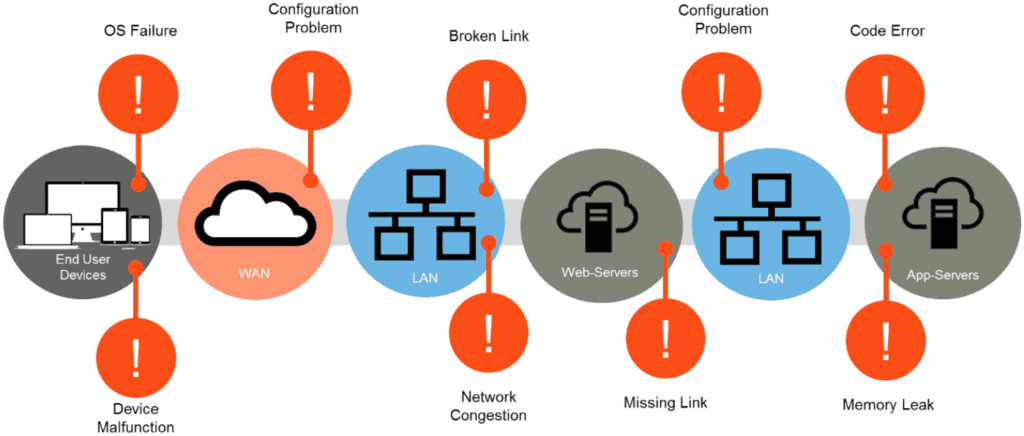Why Network Visibility Is Critical for Managing Digital Experience
Digital transformation is driving an unprecedented convergence of people, business, and things. It’s disrupting traditional business models—and the traditional technologies that support them.
This convergence, from the human point of view, is called Digital Experience: the human experience when interacting with digital apps and services.
With digital transformation initiatives predicted to more than double by 2020, managing Digital Experience is critical to business success going forward. However, most companies lack the tools, techniques, and training for effective Digital Experience Monitoring.
Gartner research shows that only 5% of global enterprises have strategically implemented Digital Experience Monitoring technologies and more than a third (34%) of CIOs identify a gap in IT skills as the primary barrier to achieving their objectives, especially skills needed for new real-time data scenarios and advanced analytics.
Because they lack the tools and techniques for effective Digital Experience Monitoring, enterprises are losing business and customers due to technical failures.
Here are just some of the many potential causes of poor Digital Experiences:
To solve the challenges of delivering great Digital Experiences, you need universal visibility. There are two steps to take to achieve this. Find out what they are by downloading the Riverbed whitepaper below.
Visibility Is Critical for Managing Digital Experience
You might also be interested in our Digital Experience Monitoring service.
Get in touch with us if you have your own Digital Experience challenges – we can give you the universal visibility you need to solve them.



